Wow & Flutter 009 | Recursive Delete Audio/Visual
The random charm of Jack Saturn's world of multitrack repair.
Jack Saturn is a character (and I am going to use character in the best way) that has a lore attached to him. Somewhere in America, folks in the DIY lifer genre will pack up their salvaged, reclaimed, thrifted cassette multitracks and send it in no matter what region Jack is living/working in— because he is that guy. Throughout our correspondence I couldn’t help but feel like I was writing to Matthew in Hal Hartley’s Trust (also please read the linked interview from the Chicago Film Society that leads with “a respect for people who work with their hands…”). Of course with the lore comes the repetition, the practice— and the realities of running a business. In 2022 Jack moved from Oregon to Alabama, recognizing the limitations of working alone and hiring an assistant. There’s the limitations of tape too— here, Jack reflects on negotiating audio capabilities and landfill waste. (*Editor’s note— we agreed to stylize four track as 4-track today.)
W&F: Hi Jack, are you writing from Alabama? Tell us about your spruced up space and how that has been going after moving in two years ago.
Jack: Hi! Yes, I'm in Huntsville. I grew up here, but moved away when I was 19, eventually residing in Atlanta, San Francisco, and finally Portland, OR, where I lived for the last twenty years. I never thought l'd move back here, as I'm car-free by choice and very much an urbanist, but I started looking to buy a property for the business in Portland and was priced out. Through a series of events, I found an opportunity with a lot of potential back in Alabama and had to go for it.
Building out the new workspace was going to take some time. Since my arrival here l've been so busy with client repairs that I just kept on postponing it. I was working off the kitchen table, the floor — basically every makeshift flat surface I could find had a 4-track on it! It got to the point where I absolutely needed to hire an assistant, and that was the kick in the pants to finally take a break and focus on the workshop build this summer. The space isn't totally finalized, but it's operational. Seeing my own inventory of machines out of boxes and up on shelves is a relief after being in limbo for two years!
W&F: This makes me think of the summers I spent in Alabama growing up, working in my grandpa’s electric motor winding shop. What was formative for you as you became interested in mending these machines?
J: When I was younger I never really thought of myself as very repair-minded— starting this business was an accident more than anything else. In 2017 I bought a Yamaha MT100 4-track to digitize some old tapes from the '90s, as it was the same model I'd owned as a teenager. I needed to replace the belts, which I managed to somehow figure out. I posted about it on Instagram and a friend replied, "I have a Tascam Porta02, would you look at it for me?" At some point during that repair, or another shortly after, a lightbulb went off over my head: "This is something that makes sense to me." Everything that has happened in the seven years since, including the wealth of knowledge I've accumulated and all the skills I've taught myself, has been a totally random snowball rolling down a hill and picking up momentum.
W&F: Is there a cassette multitrack you really love working on? The repair query comes in and you feel a rush of excitement?
J: I think I'm a bit neutral toward any particular machine at this point, because I've worked on so many of each model that there's not much novelty. Now that my assistant is working here, every single machine they're working on is going to be new to them, so that helps give me a fresh-eyed perspective. Occasionally someone will send me a rarer brand or model 4-track that I haven't worked on before. A recent example was the Fostex XR-3, one of the few 4-track machines with a built-in mic. Disassembling it for the first time, without the prior experience to do so on autopilot, I enjoyed being able to share that with my assistant.
"Check out this Fostex — even I haven't seen one of these in person before!"
W&F: You spend so much time helping others tighten up their studio equipment—what do you like to work on for yourself? Are you a musician?
J: When I was younger I played in bands, wrote songs and considered being a musician to be my calling. I pursued that pretty diligently for about 20 years, but my DIY / punk rock ethic probably put up too many roadblocks to actually finding success. I decided to quit performing live and transitioned to producing and engineering other musicians for a number of years. I'd always played a producer role in most of the bands l'd been in, and was proud of my skills, so it was natural to offer that to others. But there are tons of engineers out there, and in Portland there was plenty of competition for clients! When 4-track repair came into my life out of nowhere, that became my opportunity to be of service. I'm thankful to have stumbled into a very specialist music-related niche, working with machines that held such nostalgia for me.
But to get back to your question about being a musician, I still think of that as who I am, even if I haven't been active in creating my own music in over 10 years. Another long-term goal is to build a recording studio here in the building, where I can not only get back to working on my own projects, but also start producing other people again. When I was working with artists previously it was all Pro Tools based. Since cassette multitracking has returned to my life in the interim, my plan is to set up a hybrid workflow where we can do all/most of the tracking on cassette, committing to sounds on the way in, but very easily dump tracks to Pro Tools and have everything synced. (I joke that it'll be "48-track recordings done on a Tascam 414!") I'll have accommodations so that people can come down and stay here while they're working with me.
For people who are interested in that kind of analog workflow, but still appreciate the option/flexibility of mixing in digital, I think I could offer something special.
W&F: What is a skill or piece of maintenance knowledge you think each multitrack owner should learn?
J: Clients ask me this question, and generally my advice is simple. "Clean the heads once a week if you're using the machine regularly." There are conflicting opinions about whether demagnetizing the heads actually makes much difference with the cassette format, so while I demagnetize every machine that I work on, it's not something that I suggest needs to be done on a routine basis. Beyond that, just don't keep a 4-track in a hot environment for extended periods of time, and be sure to turn the machine off when not recording. A good percentage of units that are sent to me for repair have melted belts or burnt out motors for exactly these reasons!
W&F: Do you have a preference of cassette type for recording?
J: As far as brand, not really. I'm not someone who has noticed a particular sonic character to any specific brand of tape, and my opinion is that if someone is still recording to tape in 2024, hopefully they're not chasing high fidelity. I figure that whatever character a given tape applies to the recording can serve as a bit of random charm. I have a bunch of unopened NOS Maxell XLIIs, but I never use them. Instead, every time l'm at a record store, thrift shop, reuse business, estate sale, etc., I dig through their cassettes and pull out all the type II tapes. At this point I've got hundreds. I've got an industrial bulk eraser and a tape rewinder that I use to prepare them for reuse, and I sell them in batches to my clients.
W&F: I couldn't help but notice you had a cassingle of "Tarzan Boy" from Teenage Mutant Ninja Turtles III, tell us about some other cassette curiosities in your personal collection?
J: I used to have a bunch of cassingles lining the top of my mixing desk for decoration and inspiration. That Baltimora "Tarzan Boy" tape was one of them, joined by Milli Vanilli, Snap "The Power" and others of the same ilk. Today in a free box at the record store I found a C&C Music Factory cassingle— that's an extra reason to get my new recording space set up, so I’ll have somewhere to display these!
I once biked across the I-205 bridge from Portland into Vancouver, WA, with my cargo trailer to acquire the remaining cassette stock of a pawn shop that was going out of business. Probably 300+ tapes altogether. Among them were a surprising quantity of Billy Ocean's album Suddenly. When one stumbles upon such fortune, I mean, why stop there? So if I find Suddenly(s) in the wild now, I add them to the collection.
W&F: What are you listening to lately, not situated in the cassette obscurities genre?
J: Some recent Bandcamp purchases in frequent rotation include Paint A Room by Chris Cohen, Heavy Pendulum by Cave In and the self-titled album by a local Huntsville band called EvryThnglsWrng.
I've also been collecting discographies from some bands I was into back in the day who aren't on streaming, like Carrie Nations, Go Sailor and Nar.
I started using an app called Audirvana in the last year which has allowed me to merge my hi-res streaming library on Qobuz with all of the contents of my ancient iTunes library. Those two sets of music have lived in separate worlds for so long, so I haven't revisited a lot of those local files in probably 15-20 years. It's been amazing having my entire lifespan of music centralized in one place, and I’ve been
reacquainting myself with a lot of mid-2000s releases.
When I was younger I went through phases where I wanted to trade all my CDs for vinyl, but these days I guess my "phase" is to have everything as a super clean 48k or 96k FLAC file!
I realize that may sound paradoxical coming from someone who spends most of his time working with analog tape machines. I think of it like this— digitally recording in 32 bit float can be important for headroom purposes, but it's unnecessary to deliver music to the end listener in that format. Likewise, I'm happy when some form of tape was present in the recording and/or mixing stage, to imbue the material with character, but I don't necessarily require additional character at the playback phase. I appreciate the cassette now as a tool but don't need it to be the delivery method.
As l've gotten older, I've started to think about all the stuff we communally create, all the CDs, cassettes and vinyl, that will likely end up in a landfill a few generations from now. I don't produce or purchase much physical media anymore for that reason. At least with a cassette, they're infinitely re-recordable, so I can source and reuse old tapes in case I ever want to put out a short run of something.
W&F: What's next in 2025?
J: In the coming year I'll be continuing to build the repair business, now that I have someone helping part-time. In addition to the usual client repairs and buying/refurbishing machines for resale, I hope to use the increased bandwidth to start producing more 3D-printed parts, creating a line of fabric and acrylic dust covers for 4-track machines, and getting some cameras installed in the workshop so we can do a weekly livestream on YouTube where I answer questions about 4-track /analog recording. And hopefully making some progress on the recording studio so I can get back to music making!
—
Need to schedule a repair with RDAV? recdel.com/intake
Want to keep up with Jack? Recursive Delete Instagram


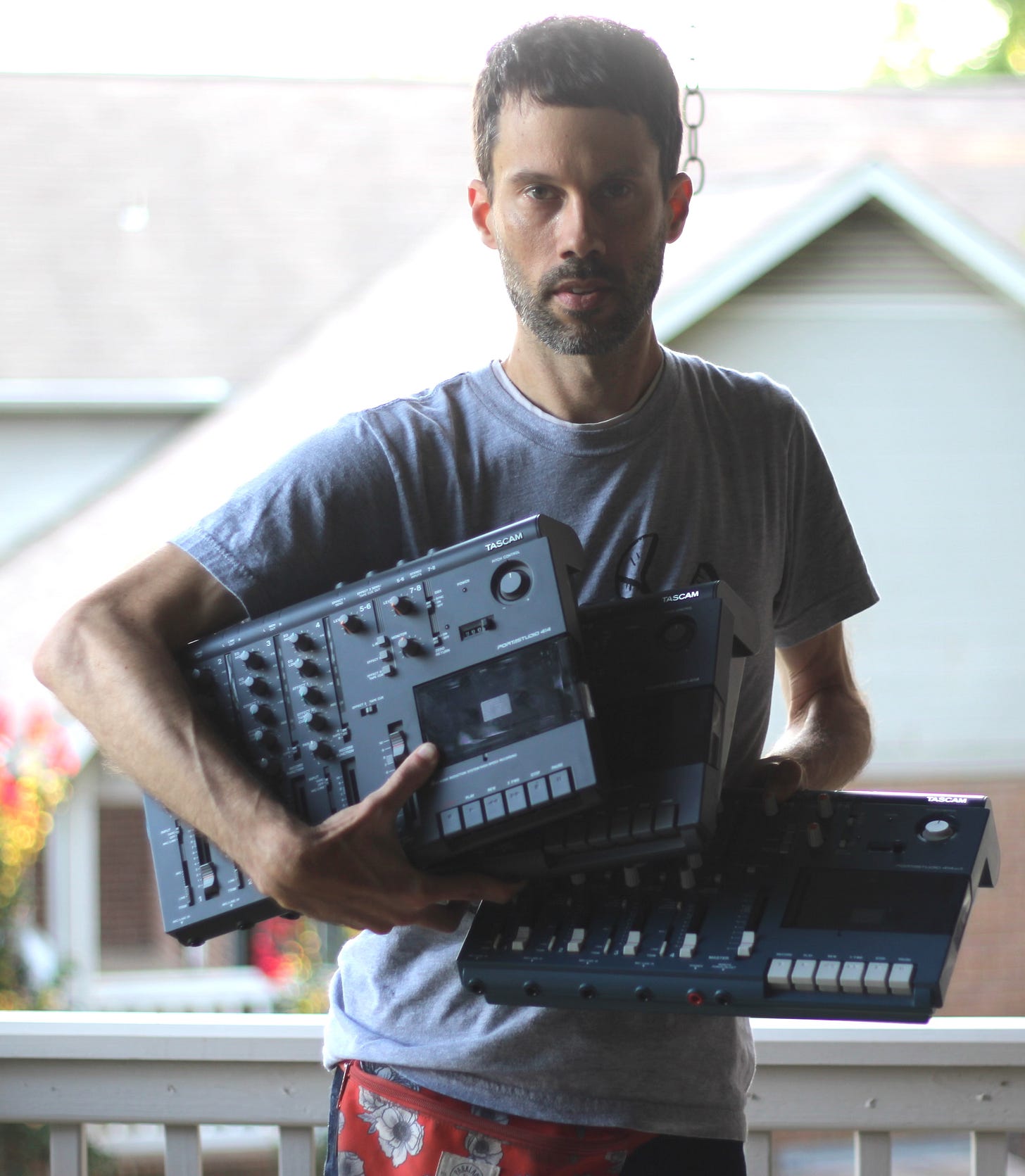
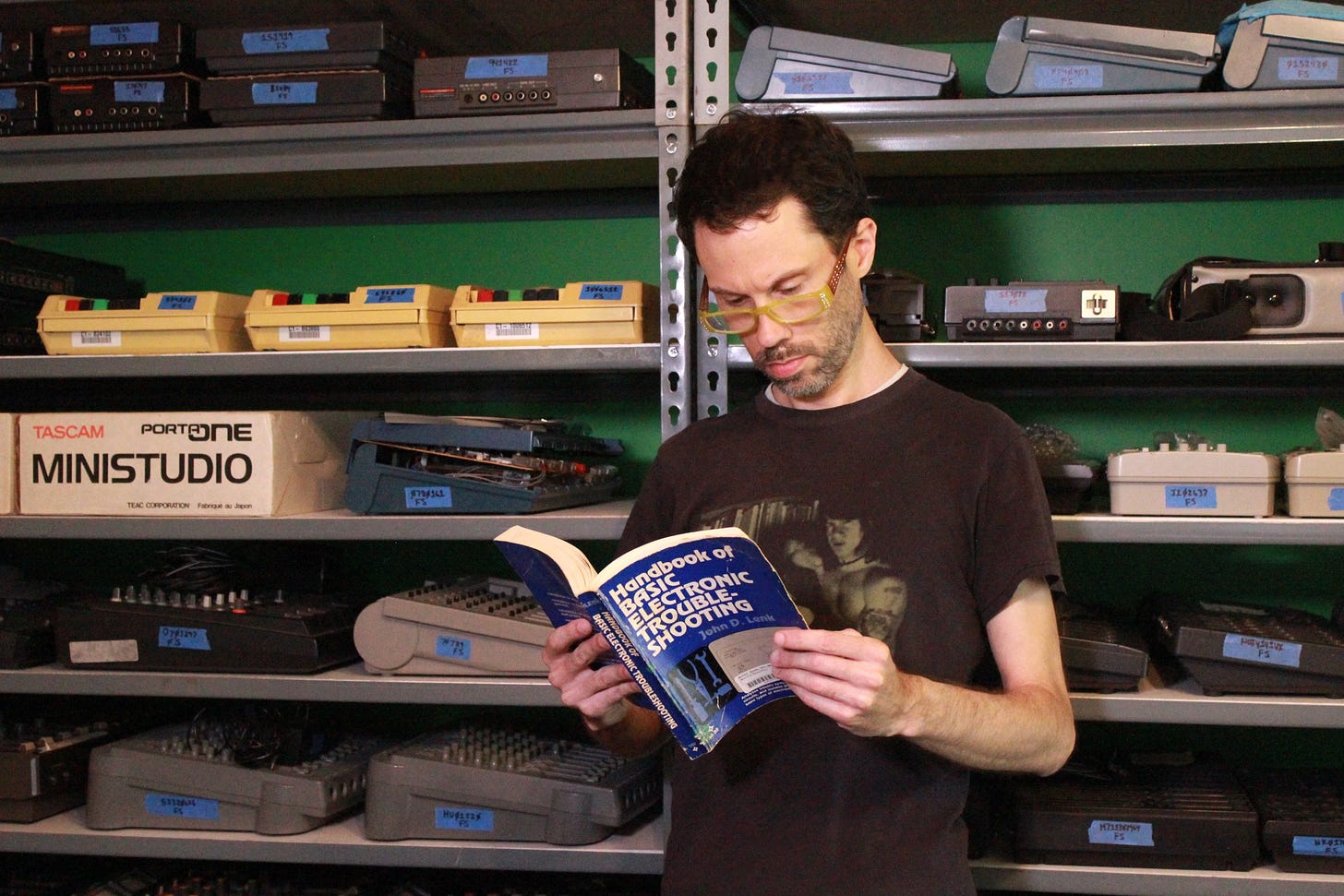
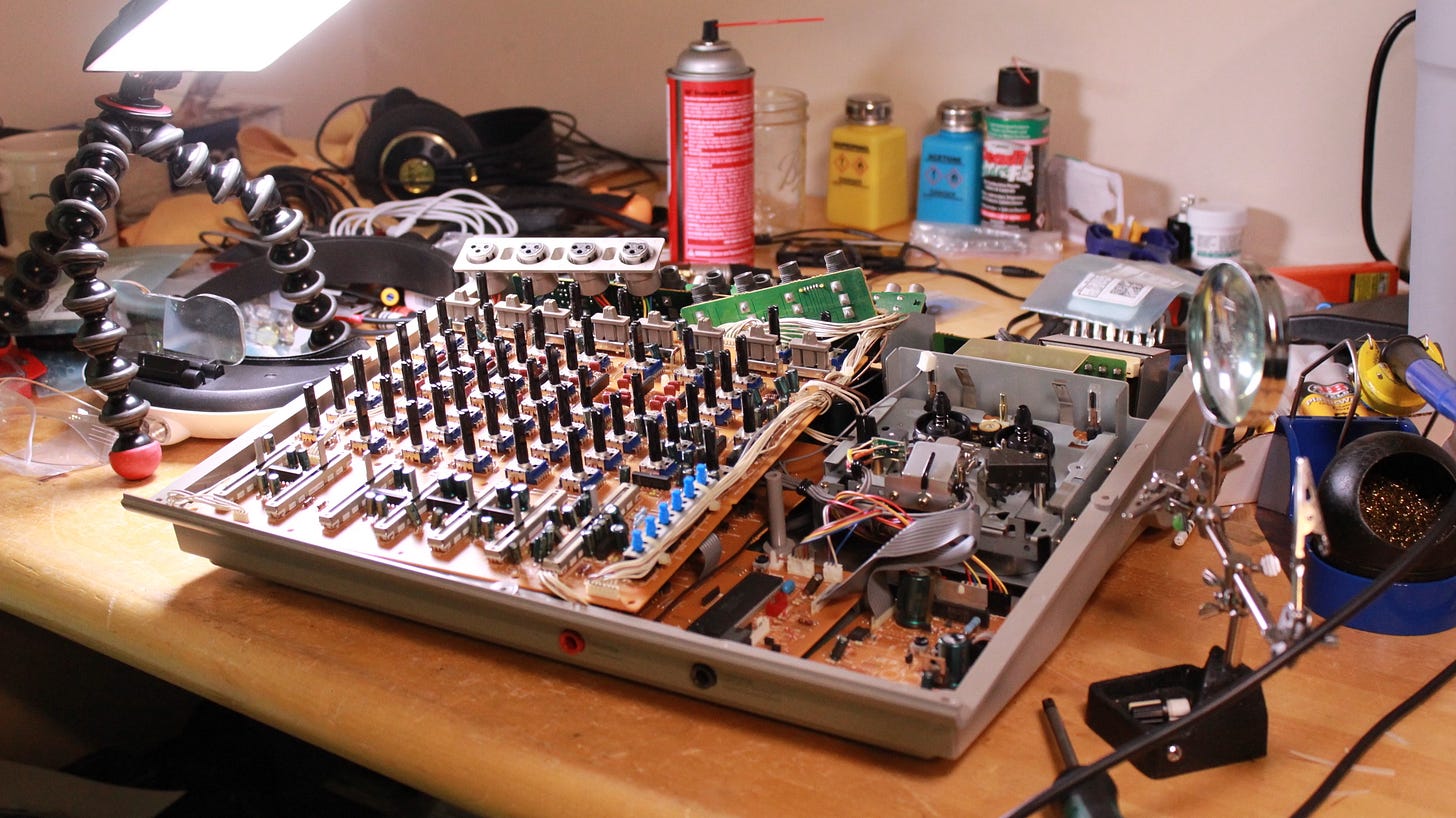


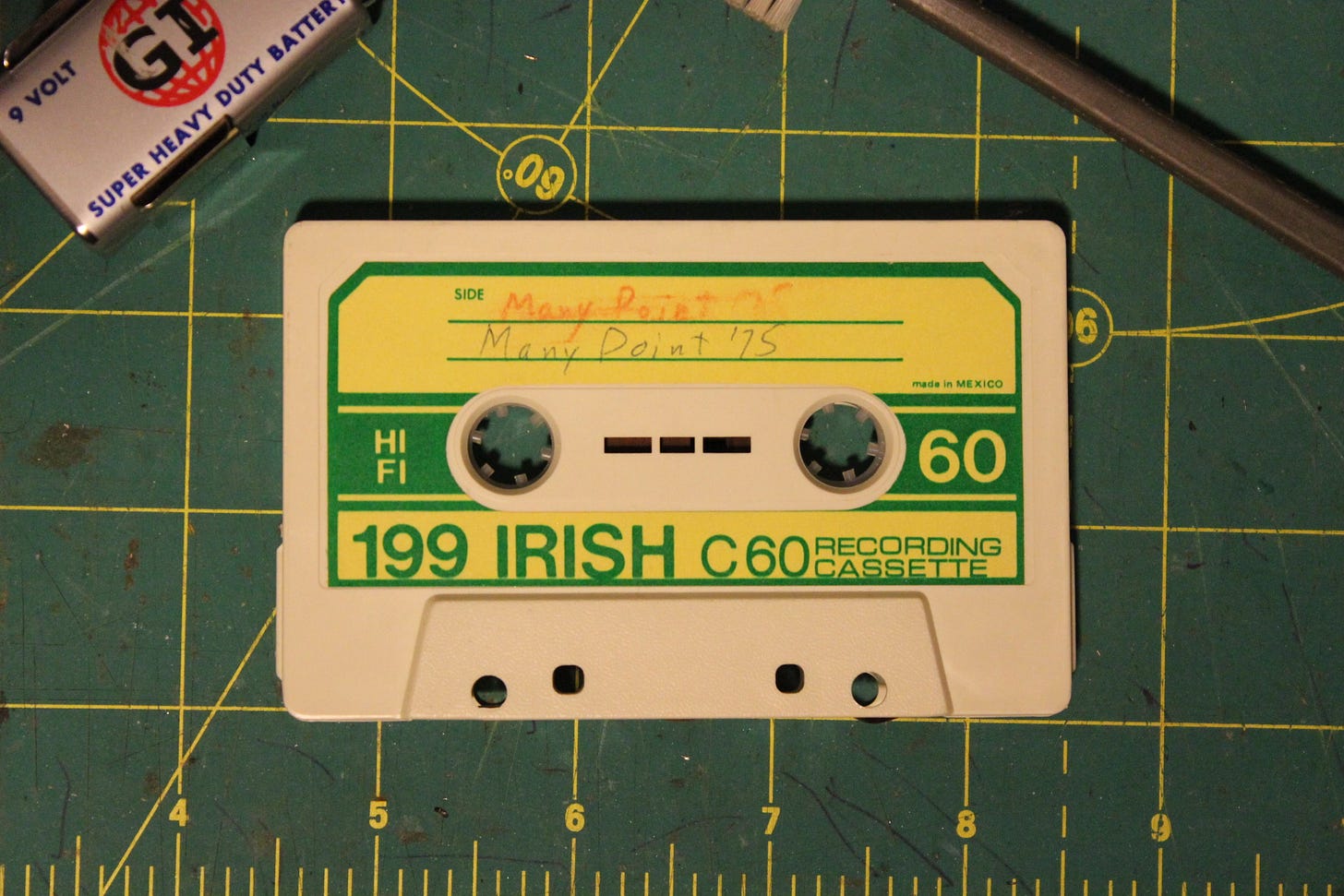

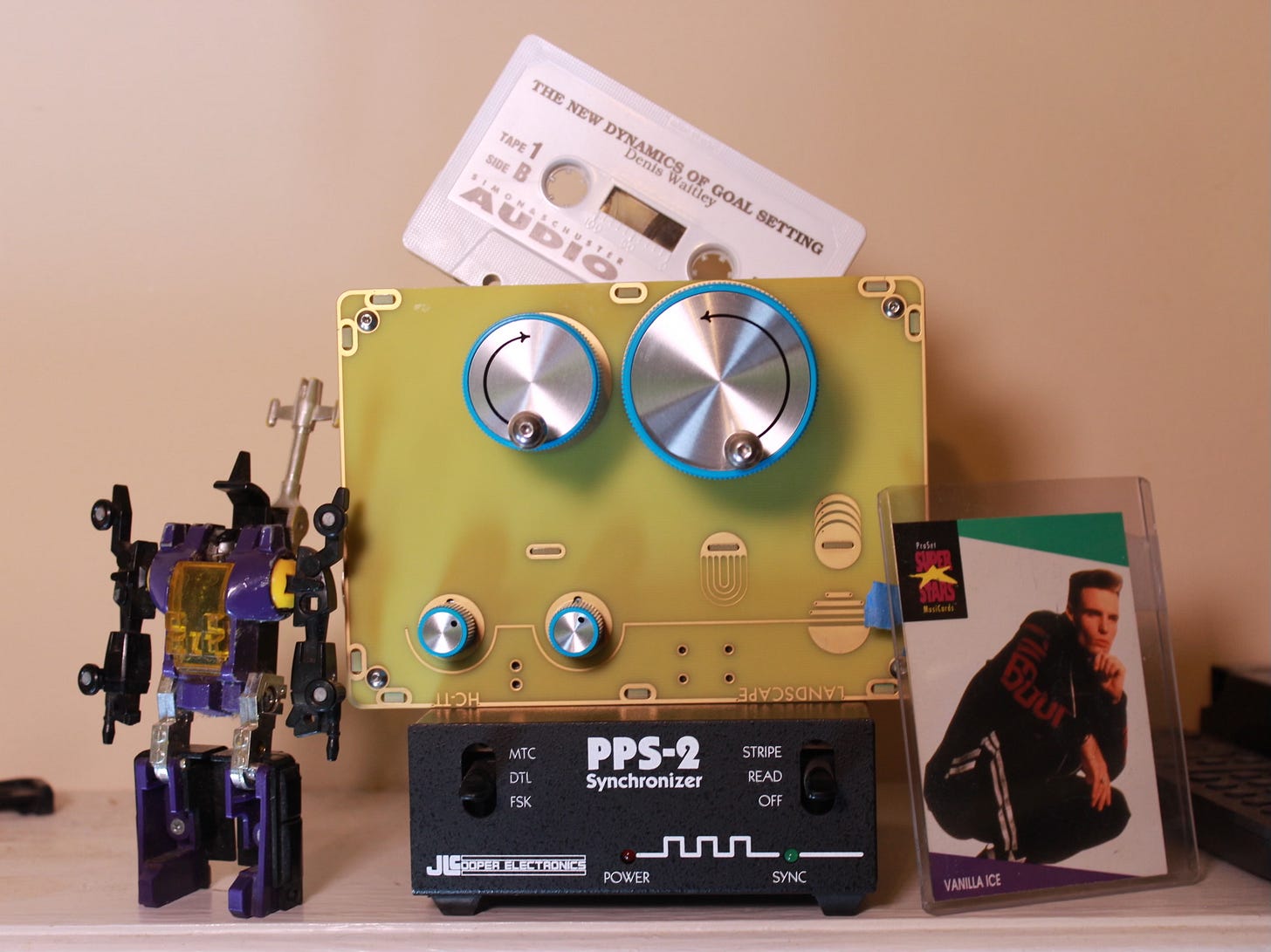
Great to hear what Jack's been up to since 2000, when I was reading his very excellent blog.